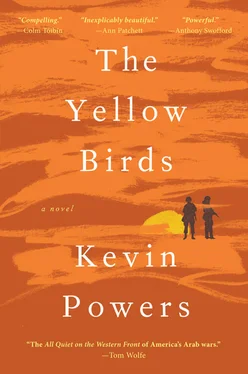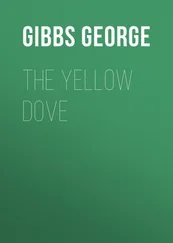The light was graying when I opened my eyes. The streetlights were still on. There was a bitter taste in my mouth. I looked around to get my bearings. My head pounded. My hands were very cold, and I realized I was lying facedown on the bank of the thin canal with my hands dangling in the water. It was flat and glassy and the only motion on the water was where my hands moved in it slightly. I pulled them out and sat up and began to rub my hands together to get the feeling in them back. God, what time is it? I thought. The house was across the street. The women stood like tired caryatids on the porch, each one leaning against one or another of several warped and peeling columns. They did not move, and I stood up and turned toward them, and they remained that way, as if in some raw tableau.
“Where is the girl?” I hollered.
They stood the way they had been for another moment, and then they turned and filed through the door. It was quiet inside or seemed to be, and I stood there staring at the house until I realized it must have been close to dawn.
When I got back to the base, the LT was angry. He didn’t yell, he just said, “Wash up, Bartle.” I did and when I was finished I changed into a clean uniform and pulled a field jacket over my shoulders and fell asleep on a bench in the terminal. Only a few MPs and officers were still awake.
I was woken by a nudge on my shoulder, then by a harder shake. I rolled over, and Sergeant Sterling whispered to me, “I covered for you.”
“Thanks, Sarge,” I said groggily.
“Don’t go thinking we’re finished, Private.” He walked away. Outside in the dark it had begun to rain again. I was almost home, I thought, almost gone.
Al Tafar, Nineveh Province, Iraq
Through the daylight hours we took turns on watch, sleeping for two hours and nodding off behind our rifles for one. We saw no enemy. We made up none out of the corners of our eyes. We were too tired even for that. We saw only the city, appearing as a blurred patchwork of shapes sketched in white and tan beneath a ribbon of blue sky.
I woke for my shift as the sun set into a wadi. It snaked off beyond the orchard, cut into the foothills and disappeared. The fires in the orchard had gone out, but Murph and I did not notice their absence until we heard the thin crackling of embers gently smoldering in the distance. The shadows of the outbuildings reached down and covered everything and we didn’t notice it was happening and then it was night.
We’d gotten lax. The LT rarely asked us to dig in, and we hadn’t dug in there, just laid our packs and rifles against the lurching clay-mud walls that separated that cluster of buildings from the field we’d been fighting over for the last few nights. The LT had a small antenna radio, and a green mosquito net hung between an open window and a half-charred hawthorn tree. We waited for him to tell us something, but he had his feet up on a field table and seemed to be sleeping so we let him rest.
A runner from battalion headquarters brought us our mail after chow. He had on thick glasses and smiled at us and took great care to duck below walls and trees, which looked, to him, like cover. His uniform was very clean. When he whispered out Murph’s name, Murph thanked him and smiled up at him and opened the letter and began to read. The runner handed me a small package, and Sergeant Sterling stood up from behind his cover, a stack of sawed-off trunks of pear trees that some long-vanished family must have placed there, stacked up to be ready to burn through the cold nights of winter where the plains met the foothills of the Zagros and it sometimes snowed.
Sterling called the runner over to him. “Private,” he barked, “where’s my mail?”
“It doesn’t look like you got any.”
“Sergeant,” Sterling muttered.
“Excuse me?”
“Relax, Sterling, give the kid a break,” the LT said, awake now and pausing from his conversation on the radio. It was the only sound. The runner pushed his body toward the lowering dark in silence, seeming to float above the packed dust as he moved back the way he came.
Murph took a photograph from his helmet and placed it over the letter, using it to cover the words that would come next, giving each line its due attention, the way that old men do when reading obituaries of friends, learning late the small measures of their lives and wondering how it was they came to not know these things. It was too dark to see the picture from where I sat. I didn’t remember Murph ever showing it to me. I wondered how we’d gone that long through the war without my having seen it. He rested his back against the wall, and the low-hanging branches of the hawthorn tree reached down to him in the quiet wind. The reds of the setting sun had washed out and the last soft hint of pink disappeared behind the city.
“Good news?” I asked.
“News, anyway,” he said.
“What’s up?”
“My girlfriend’s going to school. Says she figures the best thing is…well, you know.”
The radio continued to buzz softly. The LT’s voice draped down over our whispers, saying, “They’re good boys. They’ll be ready, Colonel.”
“Jody’s got your girl?” I asked him.
“I don’t know. I don’t think so.”
“You all right?”
“Yeah. Don’t matter, I guess.”
“Sure?”
There was no sound between my question and his answer. I thought of home, remembering the cicadas fluttering their wings in the scrub pines and oaks that ringed the pond behind my mother’s house outside Richmond. It would be morning there. The space between home, whatever that might mean for any of us, and the scratched-out fighting positions we occupied, collapsed. Soon, I looked out over the water. I smiled. I remembered late Novembers. Needles browned by the warm Virginia air collecting like discarded blankets on the shore. Taking the warped steps down from the back of the house on the cusp of morning, the sun slouching behind the tallest trees on the hills above the draw where our house sat. The light strong and yellow and thin, appearing to raise itself out of the earth, invisible, up from some higher plane where as a child I imagined there must be fields of cut grass and thistle that glowed until the day had again assured them of its presence, and my mother reading on the porch so early in the morning, seeming not to notice me as I walked past, my feet making a pleasant noise as they slid through the orange and yellow leaves. It would be too dark for my mother to see me. Out all night after I enlisted. I recalled telling her just like that. Trying to sneak into the backyard through the gate in the post fence my brother built, how she called out softly, not waiting for her breath to catch up to her voice, and it took me a minute to hear her, as the bullfrogs bellowed through their last darkening songs. A little wind came up and scattered those birds that always seemed to gather in the far cove beneath the willows and dogwoods that claimed that corner of the bank’s good brown earth. When they flew, they broke the water with the tips of their spanned wings, and the light from the house and a few stars like handfuls of salt thrown out appeared to break as well, and the ripples on the pond wavered as though the lines across the water were plucked strings. But I wasn’t there. All that had happened a long time before. I’d walked up in the dark under the awning of a few trees and she’d said, knowing somehow the way mothers always seem to, “My God, John, what did you do?” And I’d said I joined up. She knew what that meant. It wasn’t much longer before I’d left. I couldn’t remember having a life at all between that day and where I sat beneath a wall that ringed a field in Al Tafar, unable to reassure my friend, who would soon be dead. He was right. It hadn’t mattered.
Читать дальше












